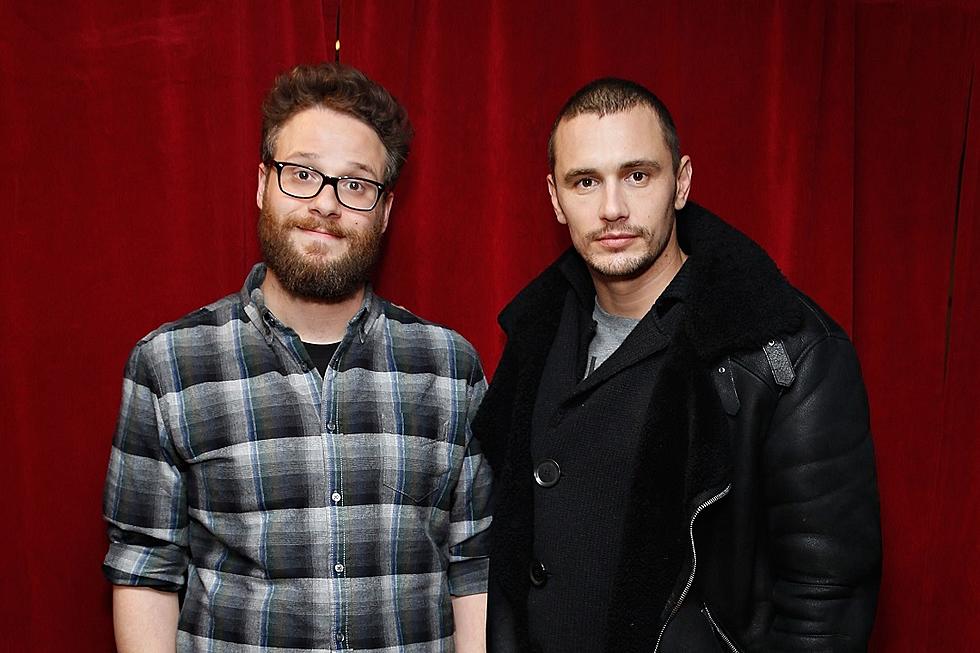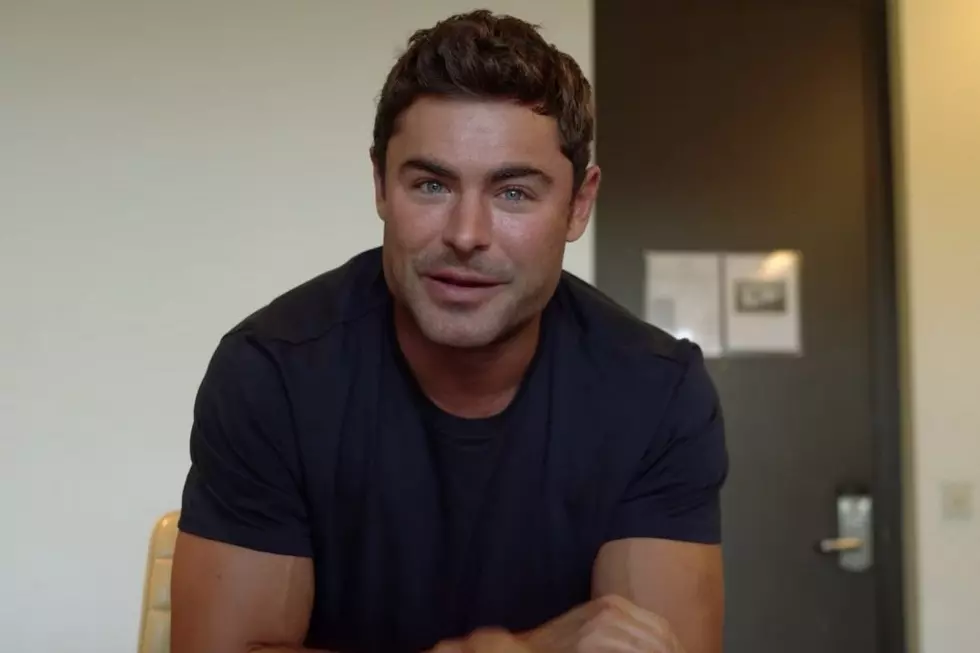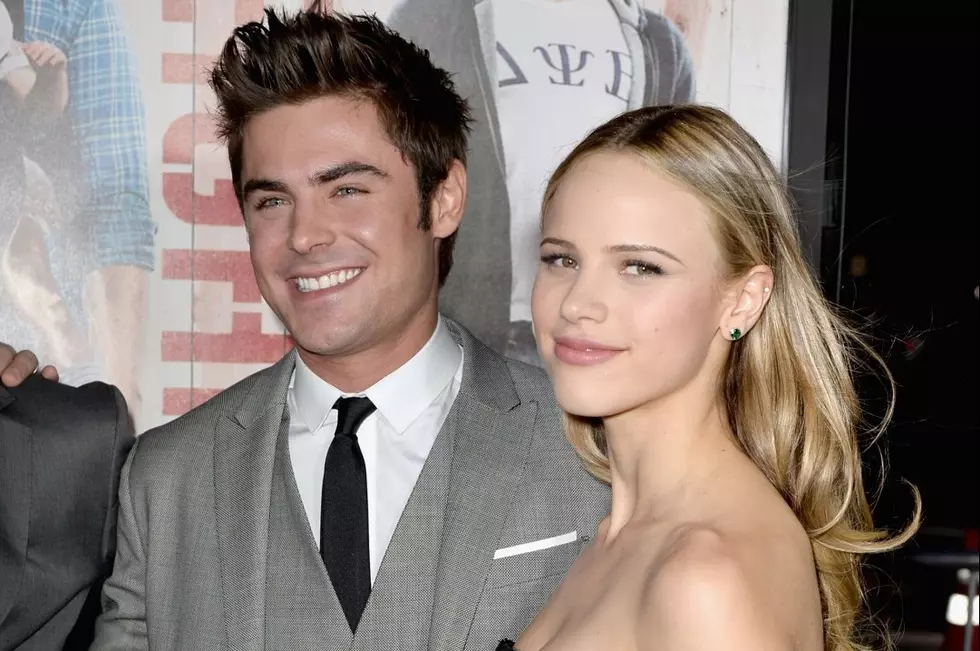
More Comedies Should Be As Progressive About Feminism and Gay Relationships As ‘Neighbors 2′
I was kind of dreading Neighbors 2.
Yes, the first Neighbors was a refreshing surprise. But at first glance, the sequel looked dispensable and derivative. By replicating and gender-swapping the original movie's premise, Neighbors 2: Sorority Rising seemed like worrisome territory for stereotyping and villainizing young women, ridiculing them for cheap laughs, and subjecting them to dick jokes. But Neighbors 2 turned out to be an even more pleasant surprise than the first movie. Not only is it one of the best and funniest comedy sequels, it’s also the most feminist, gay-inclusive, and self-aware mainstream comedy of the year, if not ever.
Nick Stoller's Sorority Rising subverts viewers’ expectations and the clichés of raunchy comedies with a plot focused on a group of college girls rallying against gender inequality – specifically the real-life rule that prohibits sororities from throwing parties with alcohol. The female characters become the feminist voices that steer the film’s progressive message, one that actively calls out the sexism of college culture, Greek life, and that of other male-driven Hollywood comedies. (Full spoilers for the movie follow.)
That message is best showcased in one early scene where Zac Efron’s Teddy asks Chloe Grace Moretz‘s Shelby and her friends, played Kiersey Clemons and Beanie Feldstein, why they don’t like frat parties. Proudly reminiscing on the parties he’s thrown in the past, the former frat bro says, “We threw great parties here. ‘Pimps and Hoes,’ ‘CEOs and Corporate Hoes,’ ‘Boise Boys and Ida-Hoes.’” Shelby looks at him curtly and says, “They’re like super sexist. Every party is themed ‘hoe.’” Instead of firing back and aggressively protecting his legacy, something the first movie’s Teddy would surely do, he yields to their criticism and agrees. As much as Neighbors relished in dude humor, the sequel distinguishes itself by allowing its female characters to have an effective voice, and by allowing its male characters to put their egos aside to listen to it.
The femsplaining continues throughout the movie, as the girls point out how offensive and problematic sexist frat humor can be. When Shelby and her friends decide to start their own sorority, the idea originates from them listing all the things they hate about frat parties. They bond over their mutual distaste of the sexualized clothing, being scouted by horny guys for sex at parties, and even reference campus rape culture – something the movie nods at again with a Bill Cosby joke.
Even with all these points, Neighbors 2 never feels preachy or sacrifices its comedic tone to shove a political message down audiences’ throats. Stoller and his team of writers (who consulted various female comedy writers for the film) end up finding humor in enlightening moments. The most clever use of that progressive humor comes when Teddy repulsively objects to how the sisters use tampons as weapons against Seth Rogen’s Mac and Rose Byrne’s Kelly (I won’t spoil how, but you can probably guess). Shelby flips it on Teddy, saying his frat brothers would’ve done the same thing with a “bag of dicks,” pointing out how women can show ownership of their bodies in the same way as guys, and laugh at it too.
But Stoller’s sequel does something even more unprecedented. During a poker game between the former Delta Phi brothers, we learn Dave Franco’s Pete is gay. It’s something that’s so casually introduced I almost wasn’t sure of it until Pete’s boyfriend (John Early) got down on one knee to propose while the rest of the guys sang to the couple’s song. Before you know it, Pete and his boyfriend are engaged and kissing while Efron, Christopher Mintz-Plasse, and Jarrod Carmichael’s characters are cheering in celebration. There’s no gay panic jokes, no look of discomfort or disgust on anyone’s faces. Instead, a Universal Pictures comedy shows a same-sex wedding proposal at a poker game full of former frat bros and it’s kind of adorable and sweet; I almost couldn’t believe it.
In the wrong hands, turning a previously straight character gay could be a desperate ploy to up the diversity quota or lazily correct the first movie’s omission of LGBT characters. But Pete’s sexuality actually makes sense and serves the story. Later, Pete explains he was closeted throughout college and only had the courage to come out later, a reasonable explanation. (It wouldn’t take a queer theorist to point out all the homoerotic tension between Pete and Teddy in the first movie.) With Pete, Neighbors 2 passes the Vito Russo Test, which, similar to the Bechdel Test, gauges the significance and positive representation of LGBT characters in films. And what’s most remarkable is that the conflict between Teddy and Pete in Neighbors 2 has nothing to do with the former’s sexual orientation; that’s not even a thought in the bro-y Abercrombie & Fitch employee’s mind. Instead, it’s Pete’s evolution, like the rest of their former frat brothers, that drives a wedge between them.
When I spoke with Stoller about Neighbors 2, he told me he doesn’t put villains in his movies. That’s when I realized what makes all the progressive elements of the sequel work so well. While the characters often make poor decisions, no one is really “the bad guy” in this story. Unlike the frat bros from the first film whose only goal was to party, the sorority girls have ambitions that are positive and relatable. The girls of Kappa Nu only want a place to throw Feminist Icon parties, sob loudly while watching rom-coms, and get high. They might be Mac and Kelly’s nemeses, but the movie works towards an ending that celebrates their cause instead of destroying it. And as impulsive and irresponsible as Mac and Kelly are, they still want to be good parents; at one point Mac tells his daughter she’ll grow up to be a woman who respects herself.
The movie’s politics make for better drama, too; Stoller’s sequel avoids trite formulas of good versus evil or right versus wrong and as a result, it winds up with characters that are way more relatable and in tune with social issues going on outside the movie theater. Neighbors 2 is by no means a political movie, but it’s still a potential game-changer for mainstream comedies: It proves raunchy movies can be progressive and funny at the same time.
More From KISS FM










